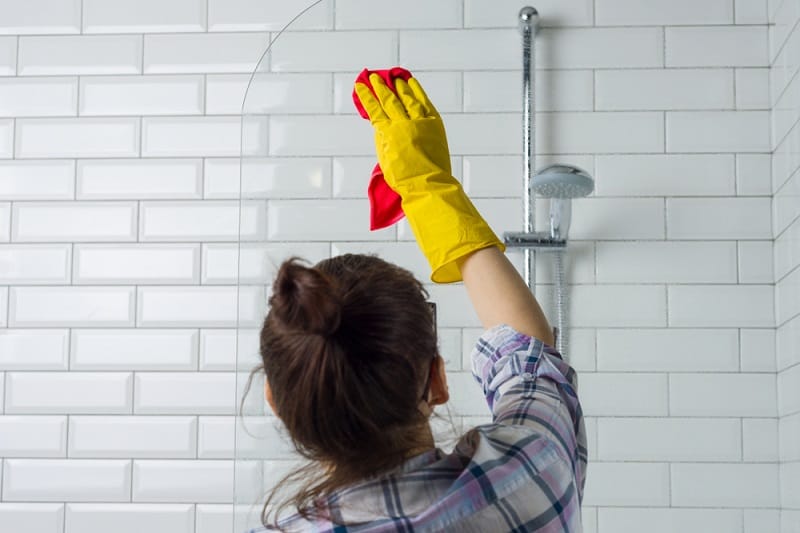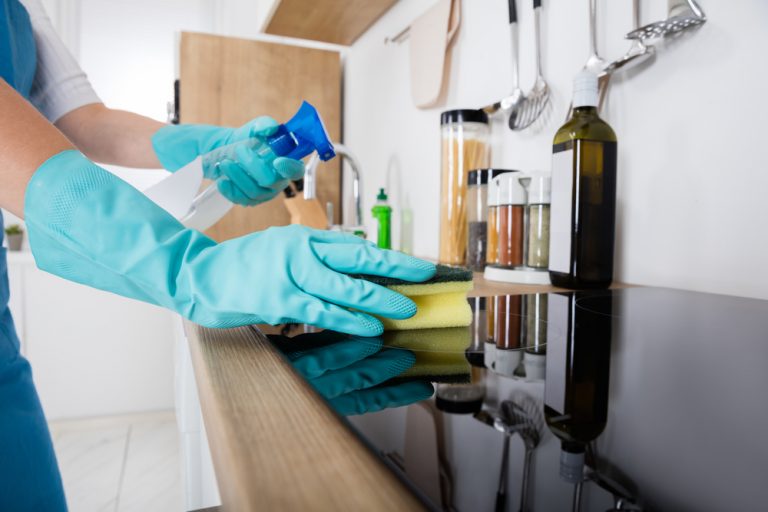How to Deep Clean Your House: Complete Room-By-Room Guide
Whether you’re hoping to do a big spring clean or overhauling your home at any time of the year, there are some great tips for deep cleaning in every room of the house.
You’ll be surprised by all the places you may not have considered adding to your cleaning list, but you’ll definitely be glad you’ve added them.
Deep cleaning your house may sound daunting and you might fancy enlisting the help of your local cleaning company, but bear with us.
We’ve pieced together these great steps to getting your home spotless – whether that’s before guests come to stay over in the holidays or just because you’re sick of seeing the same dust on that window sill and the same stain on the bath – so you can take it in your stride, knowing what needs to be done next.
Why Should I Deep Clean My House?
Having a clean house is quite important, not only for aesthetics but for the health of yourself and anyone living with you. Cleaning gets rid of dust, dirt, mould and grime which can all cause illnesses if left too long.

COVID-19 Deep cleaning guidance in Care Homes
Deep cleaning is a more enhanced programme of environmental cleaning, which compliments the routine daily cleaning in a care home. It includes the thorough cleaning of all surfaces, floors, soft furnishings and reuseable equipment either within the whole environment or in a particular area, e.g. resident’s room.
The guidance includes information on:
Colour coding
Equipment required for a deep clean
Handling waste during COVID-19
Procedure for a deep clean of a resident’s room

Tips and tricks: A guide to deep cleaning your fridge
With summer just around the corner, now is the perfect time to refresh your home and get stuck into the tasks you’ve been avoiding. Get started now so you can enjoy the great weather scheduled ahead, making the most out of the spring showers that currently prevent you from heading outdoors. There’s no need to rush or clean everything at once – you don’t want to get overwhelmed, after all. The best way to get started is tackling one element of the room at a time. Here, we look into how to clean your fridge.
Getting started
Worried about not having the kit you need to clean? Well, you may well already have it all anyway – and it’s important to stress that you don’t have to go out and buy lots of things to carry out this task. Black refuse bags, antibacterial cleaning spray, sponges, paper towels, bicarbonate of soda and, ideally, a cooler to keep your food in while you clean are all you need.
You can actually make your own natural cleaning products, if you want to go down the eco-friendly route. You may, for example, need to get rid of any nasty stains that cause lingering smells in fridges – and you can do this with a mixture of baking soda and vinegar. We’ll explain more about this later.
Fridge cleaning tips
There’s more to cleaning a fridge than just chucking out your old food, although that is a good starting point. If there’s a lot to throw away, aim to do this not long before bin day so that your food waste doesn’t sit waiting for too long.
Sort through your food and empty your fridge
Start by going through all of the items in your fridge – you may be shocked at what’s lurking at the back. The golden rule is that if it’s out of date and inedible, throw it away. Some items that are close to their sell-by date can be frozen instead, so do double check before you purge your fridge.
Guide to home and office cleaning during the coronavirus (COVID-19) outbreak
To reduce the risk of coronavirus (COVID-19) infection, more frequent cleaning is recommended in all properties, including those with no confirmed cases of coronavirus. When cleaning, extra attention should be given to ‘high-touch’ surfaces such as door handles and light switches.
If there has been a confirmed or suspected case of coronavirus in a property, it is recommended that the property is deep cleaned and disinfected to reduce the risk of transmission to other people.
How to clean: When there is confirmed or suspected coronavirus
If there has been a confirmed or suspected case of coronavirus in a property, the following steps should be taken to clean and disinfect the property
Find out when the property was last contaminated with coronavirus
A study has shown that coronavirus (COVID-19) is stable for two to three days on plastic and stainless steel surfaces. Therefore extra precautions are recommended throughout this guide if the property was exposed to coronavirus within the last 72 hours
If there is a person in the property with suspected or confirmed coronavirus, this person should be isolated to a single room while the cleaning takes place. This person should also use their own bathroom if possible. Unless needed, these rooms should not be cleaned until this person has completed the required isolation period. If a separate bathroom is not available, this person should clean and disinfect the shared bathroom after each use
Coronavirus: Deep Cleaning Tips for Holiday Rentals
Providing a safe and clean property has always been one of the highest priorities for holiday let owners and managers. It’s now more important than ever to re-evaluate your cleaning procedures and take measures to clean and disinfect your rental to protect yourself and your guests.
It’s essential to regain the trust of travellers that you reassure them that your holiday rental will be correctly cleaned for their stay. From disinfecting to using the right products and step-by-step cleaning guidelines, here are some coronavirus cleaning tips to help protect your cleaners and guests during COVID-19 and beyond.
COVID-19 is still a relatively unknown virus and how the virus lives on surfaces is yet to be fully understood. It’s possible for someone to contract COVID-19 by touching a contaminated surface – like a door handle or light switch, and the virus may live on some surfaces for several hours or even days.
It’s likely that your cleaner(s) will be the first ones to enter your property after the last guests depart, so it’s essential to protect them with the right equipment and procedures so they stay healthy. Share information on how they can protect themselves and keep them updated on the latest Government safety advice, so they know you are looking out for their wellbeing.
Here are some recommendations for your cleaning crew:
Cleaners should not work at all if they have symptoms of COVID-19.
Ensure cleaners are working to the government social distancing guidelines if working as a team.
Cleaners should wear face masks as it’s possible that they are contagious but not experiencing symptoms. They should also wear safety glasses, shoe covers, aprons, gloves and avoid touching any uncleaned surfaces then touching their face.
They should wash their hands immediately on arrival (following the correct procedure for handwashing) and immediately after gloves are removed. If that’s not possible, hand sanitiser should be used.
Make sure your cleaners know how to safely remove any cleaning gear, dispose of it or sanitise accordingly after use. PPE items should be changed between cleans.
Try and avoid any cleaning during a guests stay.